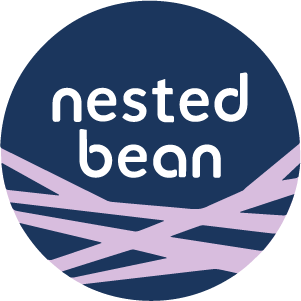
"Nap" - has there ever been a more beautifully succinct word to describe pure elation? Whether you are napping, or your kid just went down – you know naps are on par with pure heaven, worthy of a victory fist pump.
You know the best part about naps? They are good for you!! You don’t have to feel guilty about wanting to get some afternoon shut-eye. The problem? It’s not really that we feel guilty… it’s about having something ‘more important’ to do. Or at least what we think is more important.
Though technology is AWESOME and we love to surf the Internet for hours liking, connecting or learning – technology also comes with a double-edged sword: the ability to do more, faster.
With immediate communication at our fingertips, we don’t have to wait for a mail carrier to deliver a message or rely on someone being at home or work to get in touch. Most of us sleep with our phones plugged in next to our heads. Even if we do get an hour or two to unwind in the afternoon – we use it to surf the Internet or catch up on errands. We think: “A nap would be a waste of my time.”
The History of Napping
We don’t have to go very far back in history to see how technology has changed our sleep patterns. Before the light bulb was invented, most people would sleep in two bouts of sleep 3-4 hours long with a 2-3 hour awake period in between. We can go into historical texts to find examples of what people would do between “First Sleep” and “Second Sleep.”[1]
In the 150 years since the advent of the light bulb, humans have gotten 2 hours less sleep per day.[2] We’re interested to see what the numbers look like since the advent of mobile Internet devices, unfortunately, there is not enough data to draw conclusions just yet.
We’ve put together the following information and fun facts about napping to convince you naps are NOT a waste of time, but a valuable part of the day.
When it comes to babies napping I think we can agree - the longer the better! For adults the length of your nap can have very different effects on your brain.
 [3]
[3]
On top of warding off drowsiness or giving you a 30 minute break from your baby’s sudden on-set clingy phase, regular naps can have serious long-term health benefits.

Taking a 30 minute afternoon nap 3 times a week can decrease your risk of heart disease related death by 37%. [4]
Businesses That Support Naps At Workplaces
So we love to nap, and its been proven that not only is it good for our health but it also improves brain function. If it makes people healthier and smarter, and the ideal time to take a nap is between 1PM and 4 PM, then it sounds like like napping at work should make businesses more productive.
$18 Billion is the estimated annual cost of lost productivity from drowsy workers in U.S. businesses. Some businesses know this and allow their workers to nap at work.

O.K. So we’ve seen how napping can be instrumental in success as well as the many health and brain function benefits.
Still not convinced a nap is worth your time?
Let's meet some famous nappers

For babies and toddlers napping is critical to managing emotions and coping with stress. I’m sure you’ve noticed the increased frequency and severity of tantrums if your little one has missed their nap. The fact is that 25% of children still need a daily nap until the age of six.
While it’s easy to say that napping is critical to children’s emotional and cognitive development, the majority of parents report struggling more with nap time than bedtime. Why?

Products That Make nap-time easy for baby and Parents
-
WHITE NOISE MACHINES help drown-out daytime noises
-
BLACK-OUT BLINDS will keep the room dark
-
BOOKS reading even a short book before nap time will allow your baby to calm from the days activities.
-
ZEN SWADDLE & ZEN SLEEP SACK have gently weighted design to soothe babies by mimicking Mom’s touch
A Lesson To Unplug, Unwind And Slow Down
So if science has proven it, corporations have adopted it, and leaders have benefited from it - then why is it that fewer and fewer people adopt daily napping? Why does this habit, like most good habits follow the same old “the mind is willing but the flesh is weak” syndrome?
We think that the reason lies in the busy lives we all lead. This new information age that connects us to a person on the other side of the planet with a touch of a screen is forcing us to live over-stimulated lives and have underdeveloped patience – increasing our stress levels and health risks.
When we go to bed at night many of us are never actually ‘offline.’ Our notifications might be turned down, but the fact is, we’re reachable. Doctors are not the only ones who are ‘on-call’ anymore. EVERYONE is on call.
Teachers give out personal email addresses for students who need help with homework. Businesses know that connectivity is the key to success, employees feel pressured into staying connected to impress their boss. Parents buy their 3rd graders cell phones so they can check in at school. Kids are constantly connected to each other and feel socially stunted if not allowed to have a cellphone or social media accounts.
In today’s world of hurried coffee breaks, overbooked calendars and always calling from the road, we all need to unplug and just take a nap. Our lives might depend on it.
- Manasi Gangan
Founder, Inventor, Mom.
Resources
[1] http://facts.randomhistory.com/napping-facts.html
[2] http://www.theguardian.com/lifeandstyle/2009/oct/31/life-before-artificial-light
[3] http://infographicjournal.com/7-steps-to-the-perfect-nap/
[4]http://www.washingtonpost.com/wp-dyn/content/article/2007/02/12/AR2007021200626.html


